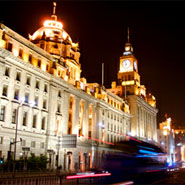Hospitality group Starwood Hotels & Resorts is continuing to position itself as a global responsibility leader.
The hotel chain, which at present operates on its own but recently merged with Marriott to create the world’s largest hotelier (see story), has pledged to conduct business in accordance with the United Nations Guiding Principles on Business and Human Rights. All businesses, but especially hoteliers, are held to high ethical standards by the modern consumer, but the politics of a global economy often lead to exploitative working conditions, making Starwood’s commitment a necessary reassurance.
"Starwood recently formed an internal Human Rights Council, an executive-level governing body to oversee the execution of the company’s human rights strategy, including the approval and launch of our updated Policy," said Michelle Naggar, vice president of social responsibility at Starwood Hotels. "The mission of this Council is to proactively surface and manage actual and potential human rights impacts for our company, and through the Council’s work, Starwood aspires to drive industry action in proactively advancing the rights of all individuals affected by the hospitality industry.
"We recognize that for true advancement, we must join together with our industry peers, as well as government, non-profits and civil society to create and maintain lasting, measurable societal improvements," she said.
People first
Included within Starwood’s new policy is a commitment to “[conducting] ongoing human rights due diligence and designing a formal approach to localized due diligence to be implemented at the regional or country level.” Starwood’s Human Rights Council will ensure the commitment holds up as an operational principle and will have a dedicated hotline to human rights violations.
The ethics of sourcing and manufacture is a constant hotbed for criticism in sectors ranging from apparel to consumer electronics, with South Asia and Southeast Asia often being exploited for cheap labor, which Starwood’s policy explicitly distances itself from. By emphasizing its distance from such practices, Starwood can assure consumers that it is a responsible choice.

St. Regis Bangkok
The hospitality space is a competitive one, with consumers having options from large chains such as Starwood to smaller management companies and independent brands all the way down to boutique hotels. With so many choices in close proximity, all offering high levels of service, many consumers will opt for a socially responsible decision.
It is easy to be skeptical about how socially responsible a large company with numerous franchise associates, a large supply chain and operations in countries that many consumers may never see can be. Accordingly, Starwood’s policy includes sections regarding franchise associates, supply chains and local communities.
Equally important to the policy is its stance on human trafficking.
"Human trafficking – which may take many forms including forced labor, debt bondage and sex trafficking – is an important issue for the global hospitality industry and we have been working closely with the International Tourism Partnership to do our part to prevent human trafficking, Ms. Naggar said. "In 2014, we launched internal mandatory training about human trafficking for all of our managers and above so that they know what to look for and the steps they should take if they suspect victims of human trafficking.
"There is also training available for line-level staff, translated into 9 languages, with additional resources available such as videos, reporting protocols, and back-of-house posters," she said. We continue to work with our external partners and welcome opportunities to work with our competitors to prevent human trafficking and support human rights around the world.

St. Regis Macau
Helping to authenticate its socially conscious branding, Starwood has recently parented with UNICEF to conduct a human rights impact assessment in Mexico. The assessment will determine the extent of current or potential human rights violations and risks, particularly as they relate to children. Findings will be made public later in 2016.
Paving the way
Starwood’s awareness of its place within the larger world extends beyond human rights issues. The company has also emerged as a leader in sustainability practices.
Starwood Hotels and Resorts has been furthering its efforts to reduce water usage across all its properties.
Efforts to conserve water will include more efficient irrigation, low-flow faucets, collecting and recycling water and an option for customers to request reduced housekeeping services in exchange for Starpoints, a voucher or a charitable donation. The initiative cements Starwood as a leader in water conservation efforts, emphasizes its global awareness and is likely to appeal to a younger, more environmentally-conscious demographic (see story).
While the hospitality sector has largely embraced worldly and ethical practices and found a way to incorporate such an ethos into the “luxury” umbrella, other sectors are struggling to improve their own carbon footprint and live up to better morals, perhaps in part because of consumer attitudes.
The fashion sector is the second largest polluter in the world after the oil industry, according to a recent report by Fashionbi.
Because of the environment’s importance to the industry and the increased public attention to and research on the importance of sustainability and the effects of climate change, numerous fashion brands are making an effort to have more sustainable practices. At the same time, consumers often see an “eco-brand” as one less concerned with quality and craftsmanship, placing luxury brands in a difficult spot (see story).
"Human Rights is one of Starwood’s key Social Responsibility issues," Ms. Naggar said. We are committed to conducting business in a manner that is consistent with the Universal Declaration of Human Rights and to protect human rights within our company’s influence.
"This includes our strategic philanthropy, in which we consider how our grantees are promoting human rights; our disaster response work, in which we support the global relief efforts of organizations like the Red Cross and UNICEF; and our employee volunteerism platform, through which we encourage our associates to support the needs of local communities," she said. "We also incorporate our dedication to the respect of human rights throughout our business, for example in our supply chain policies and approach, our development pipeline, our environmental sustainability initiatives, and our approach to food & beverage."
{"ct":"ikLQFGGhX0rdaK1Px4xgxIjw39Iks95ZnucqTS59slgQmJp1yJ6tVdwVLuiT7oKZGMQKK+sdFY03qUGw9lwmjZH3U+iAx72Uig\/XQEpCn8dO18t+YsycLQIdaIRV1sZL3CqI+gEtUTiMZ1d6XgUdzm9x0oEsQLkwihTauhT0gza8IrwhM8HjIieeF6KOhKFUkxXPQXpxwStK4AYt0TgjOVn+IK8ei2\/yZPSzisEdrn8fVDLSYroABFw6EHl2CNH10rrOyOUshG04X81RE7NYy71\/cWQ2UyfVvp30pjYEtCZ8Gwm0s\/sPJ2xsFAHGVzUYypZLucFjKAcy10rd39KuJYHTauHkdrSrpqBLGg+N\/4ifSX5IrReXM66GGusph+u6Ka9UoT9TbuHF6uOecr0yWTVE\/rnKSVPbnZSge75t5r81TULXYNndVgkqXWcJ90D2e53aEJWVmN8XPZJsx1GaqbyhWZD2EuKykieppS29huKYtFwTmnC4WljdQIeG1VOMg6IhVktN\/DP90PgFD5JjjPdVmmi0sE0aHiMqfWy\/ejSAfJgYKpZut9hkfeCvqbuRLw9lwUyTqWWBDBFYmdf46vgESM0LHWb2vZEwlzx8Ymy+g3myfWdxZVs5J7V0dGS1ET5TnSZhdSXwTSKb2Skxu1ErQmWEJfYIbVpMI0H0krQ5jUqrc+AopbC0f6CnVcFlpFBD6GMdwnV+WY3N8\/NuCRUz7R533RQY2Pf+mnKgH\/VgOVHgGUwu6GkV4zPI3m+vuy\/PJeyGIZAYnHKQaiQQ6jMm1D0lX5v8H0yU9grV\/oda9csxz3MjG7ifEs4J2VJvnI5u+IBKOpDWs2R2HRyVl1SMZ3m4tUeMoxjuRAazDGMMQqAD8bUG6z9j1XdEnUkzaJ7DV1Ezg3gZmJAYcZqUIAJDLOwoWCHm14T2mmaHjzdv\/QFj\/1JAkyZ4onmxgiBouuiivbGXd5on99bMMpYfqrYw8KCnzFTRLp\/3cfbWA3i9vQmf8uw3eOHAlRmFEt8OdC6wC0EwSq4saiedzuVmJ3G3zd8SEaaDYLYFcUvnl4VMlfJGxKs6tIX1Ro6PueeqglhzC3F5ndGz7mSLvOgCFNGTTxtZojjOm0ubK1s7D+Hr0SOfuEBU8oMAjcDPBzHgr5mqqh2XRNhkV0E3SuPI\/iRkQdtvJsl4LIxERUBZmN7qSadT5ELMA9S7tn59EO20dy9rUEdEFu8dZRtM8t64wsxs20a8C9Ysz4wc6CaTFJemI8NkDgYT+1GploDuzz2irHmCrnd5DF2buQ0Oa+J5GGaC1T28BCTcvX+sg3R0f4CeREvSwBZ8qC7l2WwFjzzUY3UhFSGDLMJpYXkwKMwaXvZPFVS+iZSIXEJZk04V6h4RR\/oG9TUZ60oGIB10J3VebtRSvSODIhYPZsBousw\/m8wk4Sb33buv0sg2r2m+qRgl\/AceibXDAVt4rP72LK6bZ2hOlhFDqVUUzoXvwilCaXfVsKV8rI52nUlrFTSwCyfX2lVhXlbF5mYIABV5p+UFjaiuTOxXQluHoZaxP0dqjf6ikBQTKg116Ym1EQ+it4zUD9JNhsn8tmit3HSHKY9ggIlFftaDKZaYi4h2ELPQjLHYCdLkZkL+oG2QcaWoXjOvEdjq5377xcPzmIkehZFSZeTmzh8cIQI2NUO8jpEXDdVVoPsZvx+mOnNH6ZXXQkIRrEPD4td6z0W0ETahKYrJF6j8EJvsbjxS+2aJcU6CE3lY3sYCer3Jv0BS0UwTLHY6mCbdfH5ofO3m8Vq6gFqrRD8abIhuJiGBrxZdX\/N8Hq24vi\/0vLWfyL1sVlcw2lTDbMVNTZKu4KTijCvCDgtQjrHkisI\/UZolfuUe38Jo7WfKwdna+iLXUsXssMg46LOU9A8bRJzy7MvjqeYB9uTQ9cYcJrHyKeCiKN+J1Sy1QmwkQlMmlM2H9DWfGIQgMIJdWIJ5wyVTArP3ZgVFc6TbUkJGDN44AKo0Uiuy6A412HUZuFExYeVLcfkR85CF0EVcPaKTMD5dzW\/CnLVgnBOQZbCXxwXbQojjO3yLhu8geotKIsFw7yv5tm6LGVcD3fnwXzUAS5hwc+FkU5K5B3SyFdgxa6BVNzhOIbKMNSqyymxbrf+l0qR1cAigmOEXhQcjxB9pq9KLWcPssChCZBeQePurnShOBjrPNkDT\/rb4YdPzmTdIqpT0AuAGz1dV7uU\/wpIfq8bI9HcavlaVXlmYnxOeEpR5euPr9+BR22v4e8SICSOqC6vFzasXhhnEUL+8wV3IljqXYSNGggW6xiVForp\/MGhXhmZyYpF\/EMjzo00BHACWvZ\/jwcLe\/AfMfz\/Dr34w4Q\/Im65qgsyLrV9FsR9VmYwXu\/wmBl\/0SU\/wH026xfwEZ0JsXWn4HkIZz8mpuaVS3tr1WVMDNo1n1dp1i1rG+Jtlu0wgS1jSfzg542KFxPjLig7F\/MpX5Q6nE\/Cc6zEEDq6RXVzHqMBTOpCJ\/SOrjxOUveQ4Y57eLYMamQSzSHDdGP5TgRv\/hdC2IykpKrupc8vGG04DP3qa7ZDbBwBmWXy1MBohT0NbcqpvZzv6H10qzcJhKRCNvgnjLaWdHap8gWw5wql6l5HyTtibdmU5pnXsD7w\/3zTxkykr8BAVMQzcfKlCFhdkW0p90XPyLVViXfLT0kHgEB\/O3AwfF96dVUsj2n6UWDSBlz5Jr4qYZv9IFXk3jytLTGfp75\/4HPT3B6BWkrYiMu6voZzEGYa1KhMDPFahNcdeFjHaz0VxosHM5ngdJuI7nB7e8sM52\/ywe387Iarlg2xTi5JTVm94xLK7xPNzKnWXD7M16GkidEVqf\/mjeGia0lHtP4CnkSuQ1n5HPRQfBJ4IiSEGMTbDorNPSu02YUJ67XFU1qBqon9+mLGsF9OsGZh4Ow7Tsms326LAcjDNpmyiNg78pqLtRd31ODW+0QfS4hHfAHNHqImfCaizIJMgFgHXNnuKqDlTHcCkVGOfjawhkWYC8STjSJLYBGw\/QxpC2KU8t0Q2jX0AEgNQH\/mq9HWTCdGW+lW7tCx9SSPe\/87cRDNiGz9\/7pE8dgZkj9HAdVexZXFiL9I6dlpk\/U04zCn6RohZB41Bswy\/Vdo7LIh6S2yOvZZZxFm+OTM+lF9MOW+ZdFjMPd\/XBoQmnBy2f1oxJCGrCqcLXMW3sDPxKfN87\/FUV\/oOkdr\/GkpP7LXUJBf0nNQzmg+Qal1k9PdVlCBNvitWBCnxpC7tFAzcepVv2RsyECyxoKgTcykaPwBOAYm4Qh0OwbXBpRXkk1KetzS+G0744jBUK5mUfxKhOrDwrnmuN+D87MDUneh3DWxRqUcVXuBrswT+O84AWHGCN0M7ySraSc4NXHCk4EnSZ0lgWgZYN\/79AogxTtWzZS\/bV5mJ8IqPxKcKsxzcxj4FPDqlujgszjfEMFt\/MN\/TBKM+A7rZATO0AjkEtJ6KAUCUGhbctNErptnn9cxcCQZ7GMEx4xN1eZHTSJNosqbKXIhyOIUjkaAc\/t283mt1IKAaAw9vYXhqG48JJKCU6KuhfOVmIhbgHWR3t9HIKq8e3gyRnH1DZAaTiHr98NiAIUnUrXhh9EK1EU62NaRsUeWaMC34HOUhSFtnOVU9gfkxKwnCA44EMmsfV\/zHcE\/4oZAUfrJhND\/18GcazcgZZNWmehV2B9ILpZ6MSjBM238wwgg9GYe1LkiNNg\/ALjjREzaxgzDLewGjzUeqjOH7pVzidOZaMOSAg5t+M3uyvkCzkHFCNs9evBnW9ott6YMA3mQdj8SqM39AR9N+owcIVoLZFRwQJ3qyvu3mjJF5B6mF7Epc1wKRofOqktG+bt11Lh8\/BO3DLyqlGnJjrkOvTYQgQMX058yS4t\/HMbLD+ogoja8tVn1\/vuqrE9sOvWwxXdQTEcVBpQtE2ny87dNlYpjVar0EHh7VbiWaj\/BZh5gs2xuzd64LPSJiHU5Zp7\/hkbtsPKtrm4YvgJdE2k0JUTGZCn1vCjzZ4kzVJ0ZyDRcrUsMzWZnLU+GYKMxSwgR9M2yGZgK201LlHyDIzOWX3qKy5uUu4kuybwbNiR7ADLT9qiqBZW+qOfRhY6mM\/n3l1GptpPXhhbBq3+db4bgx2x4MDwAiSwXzPFxi\/iAij1EsXYv72TNdoEB7CE8po0enE4GUKqvCFXn2pOEjPc77KFkn+Kqa\/\/nvVSriPYGjF5sG7nHZNL2eQB0FqsDufWu3y0lYgam6c5HpS9VHoOYMUoDEbIG2fdiSIMqJMl6ttckq33BrIAXe5qWzSxrFU5XU9LmqyLjfx+EOVL8We9MK1\/fmac2fRoiO8mtSUsHBKn0rD4N+ngliQfFyQVlGU8cWp6JscZD7HQEdHz5mxyY1UTPFIkn97g5hZVTgPI2FTw7pWGO+AVuGUBSuNaYH6W0sPebdHGBKHiybX6xRu7ThqiWSHigjIVDGq+pQJ9tUwuuKKCKzL9P5hDvA48St7i2EJzi\/r8pXCMMDFIrNiVFBytfxdHScON4a\/x\/F+RLjPov08W5xhqs7AI56zSHZKuIJpjOVdzTrNYS6py5R4p8Ez7EXXuNdY\/T+ZtQY\/3SWPuP+PeYiHkil1Zn0OXkjnsQ4Xsz5is2xMuOalyAQaEvThnknkcaC9jTOe+S3DDtrOTidhKEO0n4Hwjz1iTdlLP0wVq6fknbsZhT8VALdToLJZiEw0VD1QsQVHCsj2zSc36OoBFnmn4Qu3GehalkMXCHEhGBBOczXsBgO3oFDs6x4e\/zfeD8bmY7iUDTRsMXxhL5DGUyS5zVfezm8ZwmSpa19kucRwmvWO2x05LcD2S6lO4ZgGR7ZeQqE+KKpM2NRcrbx9500nrM+eoettHNwaaUeG15zC3LX\/MUk7rOP1EobE+GiW9guz8BsWeeEgCYj5jsAYAyvL42CtGAK2YzQicD2qY\/V4FR+L+xvMIAGHD7UuqnNHnDpRFlrfFDuibpqv93j9sljag8yIpL+I\/QP2Dc3ZiphUGWnDXZBjeW30MvDqNPL1mQWyJ8lKiP5QUEFMgVBamPavSgkSeGIOfnlZlU9gIkxLa1BSh9DT3c3QHnZfqDtCjwneL6q1Y9AIclKc3rj4GIbQTnagG3s3QiAP5lrgRWNV\/iPt2Vg5rU23lGf2ZLd9R65J7YL106ve1LBVg0gKo0YALmxVHR+D9Kf821x7GR7l6PWv3TCXNtGoz5P\/73xw4qUBW\/Aarg2NVyueDyM6pXqTPGGhKcfPUvdy8MTbO\/EFnGez0TEQrP8pkciTFH3tmhejDxAo+AXFPuqP2lQTCfvvCAVjhBDjlQ3eRRGI5LH+G5b437\/zq4P5eEgNzyEXXfrynsNLyndmF\/I5nmOmfjRazr\/xLXZYedJRRXaRLilQC+4QpI2dgCNIhFkZEoF3JpAckDO2BDJjvxTDD7wWd+ES009KA3aU\/lPjRFfLv0ug725ZLo3hcLdrorcvCAVOgbSqQTFPhpiXYFOU6MhtEEX3XtISVA\/wnnxnpthYVKxjA6RNaOZtQv1NE1OcORSiJiyNA7dnkGIuH5X1zQzPV12pMRoJxgX\/FkDZEeXDmdfcjQr6Zj7fK1CFrAXrv74u8id9lHmUuw7PVvNvl7cdLZZWjz8L9U6gKCwst3960BFMrFCuqU4k1qGGWV2enKISIC7kmUaA2tDmQI9DSytTzaYQkL3eJShS3ftsXussjsEPIE8cc4CTeou+FTlLw50HQv8rQc6XniqpCq8eFDi95Gp6u+LWx33Lr+Z2BdNyae+lNoxwiOKsaKGecDglyDgOjjVOq3U232ht20TliYDlsnN\/9PMfbWCy0M8knchtWZCuTN9HuO6rYf7jg2xNzh6+Odv3yvr3PwmLk3gTw+ccOfHzB9TffYSwQ+x3dZ8dPPFm7ujdBeyQauxhPUcVbt0eIDt2on5FpODOnFPaVhaNV4ISEob4ur0A4mTlueZ5w1iBANhSNwuUsVPJDVXyMPqMd8xjiGFQdH1uuBKbwTRI7\/WxjSZbDbw+0eb0JzpbUMvpvZ2gPWmqixA9j43vA3+gDH6LH+EmOvAO8ojiZbWdBXWcCpS55ISeHNiOLST8wsut2j29gn2geXJlQp8TbI0SORjUsrVdC396mLut4cXaunp64mvIubL9YsePf\/XZcqaIHCbdSOJ7GR1XuQfd1Bm8ci\/4JxVPSxWWspOXJTD4Kygwn+Ob\/5oyU8jRv3oJlLh0cTb26t45XknVHwQR6b8XVrWAInw9\/iP8jkUJYvBJMipc+yMt7yJu4TaGJiDbpzRfy6bqe2w2vMttklBp\/MO2yOAGo6Xao9F8z\/jYUabTR9HJM1MCS22ii2HD45kXPf+B3QRQYhbiL59YtnT77FkXXnTathgoQEzYOArvPI0LHBv2T91nOG9M0TyGFQVNaTqGCCwGONydJ58wYByab19PPE0bFfFmoHrJkeAFE+4PDo+dWID04hH3szrGO7DwleajglgEo7CNRh5jgXyoz4g\/B2BjKAZKxYDHUhNoUO5ixe+nScEJSktN4c6aeSKaYv+6kYs3DR3iUjZ5CeZBzckylmQIJ1IHX6fKZhm6+ykpbabPJy2h9xTrAC7DtbFh58g6ZozvrWIq9vwTmHPv3GnPuQX9VJ42XBQ0esQ6EqbF42W9jMB8h6cfj+1VNU3LCI8Hoz4TZ6A8BNndqNNSQMc\/heFGPdqCHkXvnDaBr6A1F1fG8Ucced+UK1KnpKDSYbRCmbarlU50oVmq1saBX2WU8yqiiJKhGVZdJN4uwBIP2N+LusGg4SY0EthIUacj3tPHI\/RYaQ8S08jE7ImzunKB8xyt42+qOru0EmtL6uqnvmbvYtmPdIJmYmPOZsbv4ExIvAzDgYLyffFiPNo9IFdQXvHu5OJ7LDbE9YH+BRj8RQJ4GJx4mz25FY6ZUy00fRjm0xfoOfqyYHx3D2McpxXFmuGcfuKQJpzFo\/McGr+d8jBWMDH0ZAnC2EwFZzBsXfVdFs3Wb4Lus8231wDEbAaKBXsqy9FvTq0pNHAYF0\/3t3zKwo8yqhjmPCQBnhjIW0Yc6Gdi8yZlsRd8lHtPeoRJWWtKwm4RgpMTo6OZwilksSKb2ljU1ItrvUndMlfTWgOq+ltHjRzON\/2N8DY9JHNCGrJ3nTXGW27+\/gV0qFqtCMsJV6GD0iENlaYOWm9MampeFEPGS3em9SLqBI2iJWmtVfYZ8UYwqha6j3HK5RlG6HKJnBLUew7jzBc7Moyk9IEjPn4MIYOOH8U1fujKhw75xqpJuPx8Zma55Mv0LEVphZ+3DsSf7wQS8UQxoIT4W60aWrApUiNuMbhgPDTCIbZHZCj1NXRXe43adG62qydoJ5EQL6Kb37WixHaabn5kwP+aNdzYwj\/zPdbwgtLiRqnfBpF4HAyCfVQv0B1ewu10VXtC\/ubpwUBs9AnLBjyTaLo1zaSOZ8UGLVraOKqDhNRMX02rOBjnznfJwioUBkxMT3kRsHHQnK1VVT2r9Xa0FRPqMXeJ9Z6Q\/Jml2WnBzysYHIH2s1AgBixZf0UJnknF4\/Q9rW4NmBwUiWQ+6VH7GHm6vxHg+L+I5jBMp2shx5ySx4JKd7mTjkpP8cghvHn1KjEEkj2Mt6\/1d8Cj2DbF8mZwFDT7jis783vGSxUYKVySrK\/+AlShwdH3N9LdDyHE3uKR4nj3wUT5lMk0YyNBsHZyZd9fOplVO8Thx7rHIZj0HLsX4bVbkpj3XcP0TIl10kZ0S3p+mMcW+MHsRxzAM7fELKGMiNIU9ptNzhgR8P1dJNOGfUXJk8Ks4rqjoPO\/IziOVysyRH6q3ezR47SUmxBcQCKKL1ukhoSoUtQ2sXyNd+wvMlRU1WxDqQJOquBidcWEA6qFWRMsCqy8HAsG1t2Vkh\/1dF2o7XWVf4FBQleCZbx8H7qKMH9Bf\/en+Oexkm3Eylqb0gHQxCf0uZ0gZGecVABHVvaxC7uY9XgSJ8I1JH3l8dne7eZeZYgIR1B+ybIKZOHAHG79ZFqKQu3Y\/SZE2kL7yoOqyVe6QjIPqbyd5b9m1x6ex3jfXVij\/djjJnKBnJaeJIA9Xxq\/mJ7pZaVtVYFjfCAfn4fxlpkDbY8ZkcUDVY4Qg95lUCit4eMAhsGF9EtIGBkc+aqowNg3zYDbjZjC6a2as0yctSgCROTOxCHd+PcR4CNpNmgcSg19cs6ccTr32NPy5xO9nzbCqZdAV9RfftFMF5ZSWG99VUWb6CQR0x4C4\/Z2fsQsyJ2XVt6ZQ9ly\/9cOaTn2\/bjsjV5BjFv4UXq+u9lSjGmXFTi0Be6hbzDYpFPUm3V6oN5TtNWGKvUqf+\/v2bvCF8ilbb+Lcii47sDnO9lqwRAOPd1oryLfmmZE0Zf9cfnMmS7LEZiIdwQxbp\/lqTopQG3ZqK70Cd7EINFsb2ounkyAk0URXUSnb3Eqkvgo2o3HFNjhX\/WUrdeF5IHCst9rK4X8lmH56rwMowyAxCsnc+m+4vYdfC6D0rh8OpGz\/PUB2AQE246JkEfc06MGTaRlcKMp0aeaS\/x3XzC7Arm\/RTB8\/F+XYtY1uQ5Yn5wCZVu6M5zO2dszGrXRr2wktZXOUWE2tz3ujFkENsycTXbk8GdNa8jn5mCrBNrhdb8YgeTlqouKA3Z61JhLSRW++FPQhwSXXMGtcwjYtw2ZbD\/1Njv\/7iJuA2DuTQVsntbf+mir33NqRLooiabYyeYN7n4uBNxPW\/0d7XOmfWdxuFRTHHTrxif0EV5\/liAizi8wwmFAsxs8q2gDN8zpeLe3MPP3HnNDyzYPuOCeXvAC5Iq3YMyJHVTs39oPcAac\/FYeAlpF1S7cfIMtWcsqBNzR8oWM0HpYSZy9ITthd\/O+IS192hAT2oCPbw7DJ1a+eWvjwXSnEYYk0qVC2brCBoE1OHSLtnf2vLGuvJZzU59Zesgh1Tg+qWi4imtCorPFKOQFr8jfXPBZFMPlUhqGK94ss5XHZ35Hbst5Vs3yoxJZ5L6HGnxxjm9XsZx5T4mv5adAxgKiptAMMi8Qv3lGqEYyfBmfLUVdqPeCKxH9v2UoGqaZdPACwHpjYkWBhA1MFv0cJOwVQzyVFa0kfsVKFQorBZ3gCCcFJr3jKohob+WQYsU30gKcmcRfcAvvVXSd\/JlYUWvPxLrvC6y54esmgf9H1rjzky4iMfqXg3KV0UN17BXrJWdT6QGLI5a4wpRqFm1Io5XkIqFlJg68SdaO54Pn+SSYIS4ofrT95oauIUIXe83t77WQ6Nhq9t2GEF0GRR1xqo6FtJqQoVNePthfeSzk4Gky8IPJf2HIIoUYCEyVjgtUfmPUW\/n8rjy3vxThrnIUWzj9CSbk+eiev4OESnM1FjbIgpdLVWYZ2OZdX908HH1jLhDIrXInucOkC+nXw\/iFc8WjTbvaeG7mjiH2NovkYrOTLhjwOq4am8mkfoOAji1N7KPic0wXg9mgjereYEy9Q4iW+zQQMqgURXSGDangNGJ3+lQgMZe+Jf2AliPYEOrBokW2+uEdmHEcwj\/fhlPAxQMx5ITuTynvPb+Eh76FZKjZJ3jWElIQho5alVGED+0ZLxEcR5Cv5V\/TKEsqBlfI0\/Vb9Po8lmXaJcmNhdE5SNWaRZ1GP3xV4+HYZPUCps9654FgesY1nKvX5jDNCQTBPu5RNTPTuPqXh3rl5eeJk66GPHe1wPqNzFLnKj4jEnOtgXpixwfvsn+byO\/\/5llHUG99J8ibnIKAv1z9gxkvqLQ82rOzm\/8xjcDEmErrr2yb8aPToVv4oChzgrgx4TxR+kfm4bXJbDbLLCP0kBKMzZHTQ\/aZmrVTmmpBU\/kt8YtFS0Hd2xeT6RuMuMdSfmK9jcgnbH6ZRfp9O7xiQQUiN3yX+g\/rwP4Djk0syi6ufhpNcyzK7IkcVOI6OSg\/u1OwtkvbWh7KmwIiW99EpW769y0ynZwBEHLKhECEp1XLmev\/+tWiYYPUn2vW4fl6ChLiPje3\/g3SF4PURxjsXv8XR9fS9FUQlG63iQwuCTS5mIxXYQh8VGr1iNzp0MX6knI+YAngmyZKgNV86gpZwxzcB7QRlbi9\/kReOiVbTbT0No\/oPhg4\/AygHs0+qNhaUeC49n45z56W8VLlN7TPMFa9TtIeyYxApuwJ2aJ2gPNrXqLfbo+D49kzVrBbG7ylcYFcnpkBT8fH6HpCjumn1\/0iJghTTzwgF\/dze07UcP45RhzcaIQvZpWQruXohWXqVyJP\/G2caCUraL8v4SZolQJIl2jRx0wg6Wc0z0Mq2UGXmcwHIz9u6BgBUrjusxRhptBB1he5aOxHAqdhVOC6oTgu1rWGPuqgHjBJyMG7fYHfsp7uiVR0L\/ujXq8l2CLV5uC4P96fYqIwufmdnPXOE+LqtuPQphv6QCR7BNAypYJt6Mm2j7s3Hm\/UZeytjQVwfwZBh6bEX+vuozfHMBRvYq8BDm86dMco7Yh1qllhpt\/q4d6qXg\/tRjDRRGI987f5lvIQY0YsLEk1vu6r5XeNnU2YRNOdc9kSAOAI6XjwuhcHTCe18axWgLN8iMrgJm1HewPdJgRh1SSuFtOXrwHVCbp0qPahQNajYHpQLZ7rcMNF4uRlykFAyZjk2YSG0h73yTMQAVDqUhmWo7FNjgxP2CCzrwzRi8H3oNRrtXlshR9PupGzWN7XNQYN1FSVCgDy\/+hibOEei4f2VFkd\/iXLXYDBFzwlzzMZHrlOhUmLoyBntj\/kIteenb2HJJ3jJi35gmBGsHC1ObHJorUH7JvDx+Aowj1hljY4WxYXVCly1QWuE8YfMbu33IZ09HJ3UYDEbI6s1ppC3SGKL0F9QnDpC4PwwUOfqRL1cu\/VcMxtNOaWEWrmFJgeuEcBhDv4H03s+FximbcBY4afLnmScBqtIzl+LAkF6h070GbilcIag==","iv":"3c6d9b22780049154460e660b33fb85b","s":"1f633788d110b1c0"}

 The Luxury Collection Shanghai
The Luxury Collection Shanghai